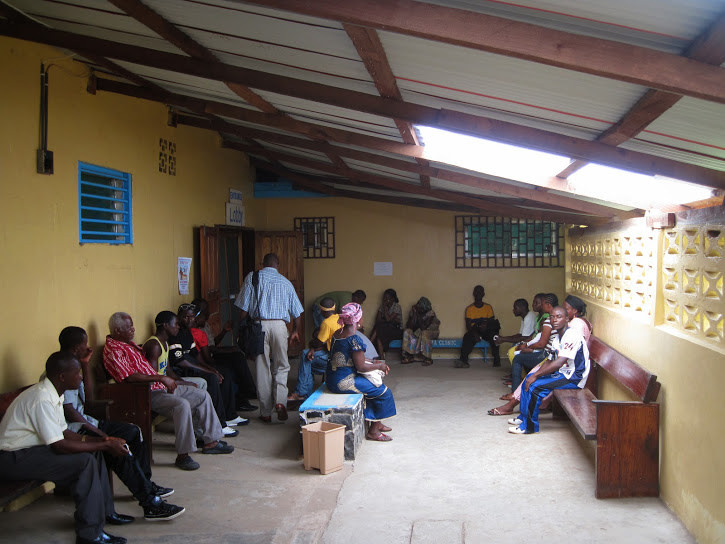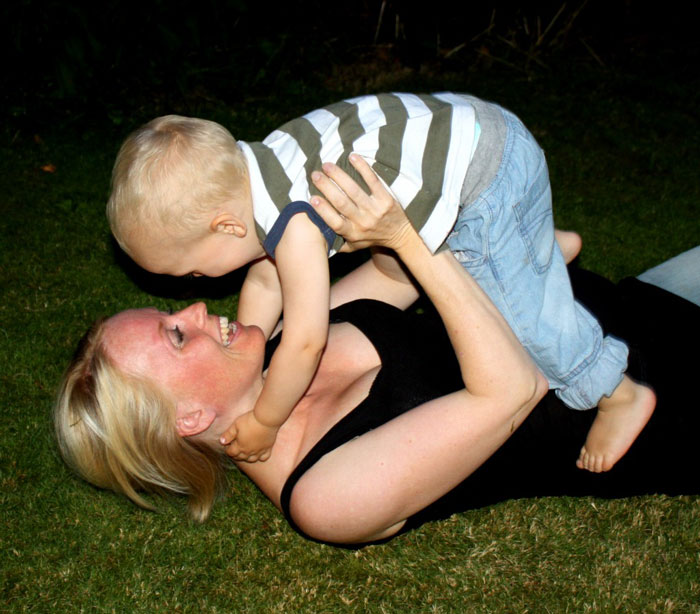
Pregnancy can be one of the most complicated and difficult times of life—especially for first-time mothers. If you’re Mormon and pregnant, the unique elements of our faith and culture can add additional complexities.
Not having any first-hand experience on the subject, I tracked down a Latter-day Saint doula. Doulas are the ultimate pregnancy professionals. They focus on everything outside the medical components of pregnancy to ensure the mother and family have the best possible experience.
Samantha Moore, a Latter-day Saint and owner of the Doula Girls in Kansas City, Missouri, sat down with me to discuss how Latter-day Saint mothers can have the most comfortable pregnancies.
1) Accept that Labor Is Coming

Often when we talk and think about having children, we consider pregnancy and infants. Our dialogue often leaves out labor. So while it’s natural to think forward to your new bundle of joy, Moore cautioned that jumping ahead can leave some Latter-day Saint women unprepared.
“Not all Latter-day Saint families are the same,” Moore told me, “Many have frank conversations between women about the realities and celebration of labor.” She went on to describe those families as a good example. “There’s also a large segment of our culture that finds labor squeamish.”
Labor is hard and not clean, so it’s easy to skip over in our discussion. But Moore emphasized that appreciating the labor process as a part of our who we are before you get into the labor room makes it much easier to appreciate it while you’re there.
Here are a few of the suggestions she gave me:
- Celebrate the incredible things the body Heavenly Father gave you can do.
- Talk about labor with people who have gone through it.
- Normalize labor in your conversations. Bring it up as often and naturally as any other part of your pregnancy.
- Think of labor as part of Heavenly Father’s plan.
2) Say What You Want to Say

During our conversation, the doula kept returning to the idea that Latter-day Saint women needed to learn to speak up for themselves.
“Latter-day Saints,” Moore said, “learn to be great listeners. This can be fantastic during pregnancy as we listen to advice from doctors and families. But we also need to learn to speak up for ourselves.”
Latter-day Saint women may have preferences that are unique from those of many of your doctor’s other patients. Talk about those things.
Moore also warned of a tendency she’s noticed with both Latter-day Saints and other women: they tend to second guess themselves. “If you have a question, ask it. If you have a thought, share it.”
Pregnancy professionals see many clients and often recommend by default what is the most comfortable for the most women. That doesn’t necessarily mean it’s the only way to do things.
“You can talk about things even if they don’t, at first, seem like they are open for discussion,” Moore suggests. “Your doctor can explain where they can and can’t make changes.”
Moore added that in her experience when women have an active say in shaping their pregnancy experience, they come out of it as happier, better mothers.
3) Own Your Modesty Standards

One area that can be particularly sensitive for Latter-day Saints who are going into labor is modesty. Moore had two distinct pieces of advice to deal with this situation.
1) Modesty is Different During Labor
BYU dress code standards do not apply to your labor.
Moore explained that some Latter-day Saint women never give themselves mental permission to be dressed with their doctor differently than they were dressed for a stake youth dance.
But modesty is entirely contingent on the situation, and labor is a time when the most appropriate thing to wear is what makes you the most comfortable.
2) Be as Modest as You Want
But Moore also stood up for those who do feel most comfortable wearing more modest clothing, “Most births are in a hospital gown, but you can wear whatever you want.”
If a longer more modest dress makes you feel more comfortable, Moore suggests that you wear that. You can also make the delivery room feel more modest by asking your doctor to ensure as few people as possible are in the delivery room, especially if you’re delivering at a teaching hospital.
“As long as you have realistic expectations,” Moore told me, “you can have less anxiety by communicating your modesty desires.”
4) Make Pregnancy about Family Bonds

As Latter-day Saints we value family, and since pregnancy is quite literally the creation of family, it can be a natural time to make those bonds a priority.
Just like in other areas of your pregnancy, once you decide how you want to bond with your new child, make sure that you let your doctor know.
Moore gave the following suggestions to help increase bonding. Use the ones that work for your family:
- Immediate skin to skin contact with your infant
- As soon as possible breastfeeding
- Leaving the baby in the room with you
- Father-infant skin to skin contact
Labor and delivery can be a very spiritual experience. Moore said prayers and priesthood blessings often occur in delivery rooms, and that if you feel the spirit leading you to a religious expression, you shouldn’t feel ashamed or embarrassed because of the surroundings.
In fact, Moore tells me that she’s talked to women who say they can feel the spirit entering into the world during their pregnancy.
5) Don’t Let a C-section Derail You

While c-sections do make for a different kind of labor experience, they don’t necessarily need to be a worse labor experience.
If you go into labor with specific hopes for the outcome and then a complication requires you to have a c-section, some women naturally feel a let down that the experience did not happen exactly as they had hoped.
Moore suggested, however, “Just because a c-section is a serious medical procedure, does not mean that you can’t bring the same kind of family bonding into the experience.”
Because of the nature of a c-section, however, medical professionals sometimes become focused on other things, so speaking up can be particularly important.
You can ask that the baby is brought over to mom as soon as possible. While skin to skin contact may be difficult with mom right away, skin to skin contact with the father is possible.
Moore suggests that if you say you want a “Family-centered c-section,” that will communicate to many doctors the kind of experience many Latter-day Saint women may prefer.
6) Set Expectations for Extended Family

Latter-day Saints are notorious for having large extended families. During pregnancy and post-partum, this is mostly a blessing. But there can be times it’s important to set limits for your family.
Moore suggests that you should decide how you want to approach extended family before you have a baby. Labor is so exhausting that it can be difficult to make and stick to tough decisions. Consider the following:
- Which family members do you want to see?
- When do you want them there?
- How many are you willing to see at any one time?
There are no right answers to those questions, but Moore suggests to first-time parents that they will probably want more alone time than they anticipate. “It’s okay to say no,” she told me.
Once you come to your decision, communicate that ahead of time. You can also let your spouse and nurses know, and they can help facilitate your wishes.
7) Accept Every Family Situation

Because family is so important to Latter-day Saints, interacting with those who can’t have children especially while pregnant or soon after having a baby can be a difficult situation.
Moore, however, suggests that new moms don’t hide their feelings in an attempt to be respectful. “It’s great to be empathetic, but it’s okay to have your own feelings.”
One caution is to avoid generalizing your feelings or experience to other people. When we  do that, Moore says it’s easier for us to learn to “celebrate with one another, no matter where we are personally.”
do that, Moore says it’s easier for us to learn to “celebrate with one another, no matter where we are personally.”
If you found the advice from the Mormon doula as interesting as I did, share the article on the Facebook page with someone you know who may benefit.






